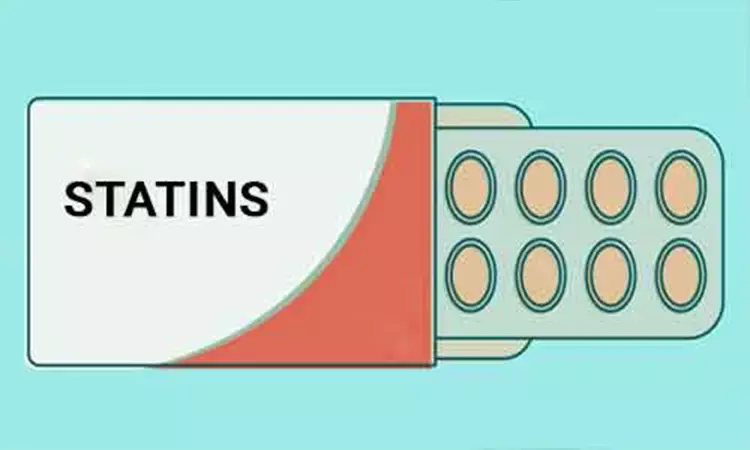- Home
- Medical news & Guidelines
- Anesthesiology
- Cardiology and CTVS
- Critical Care
- Dentistry
- Dermatology
- Diabetes and Endocrinology
- ENT
- Gastroenterology
- Medicine
- Nephrology
- Neurology
- Obstretics-Gynaecology
- Oncology
- Ophthalmology
- Orthopaedics
- Pediatrics-Neonatology
- Psychiatry
- Pulmonology
- Radiology
- Surgery
- Urology
- Laboratory Medicine
- Diet
- Nursing
- Paramedical
- Physiotherapy
- Health news
- Fact Check
- Bone Health Fact Check
- Brain Health Fact Check
- Cancer Related Fact Check
- Child Care Fact Check
- Dental and oral health fact check
- Diabetes and metabolic health fact check
- Diet and Nutrition Fact Check
- Eye and ENT Care Fact Check
- Fitness fact check
- Gut health fact check
- Heart health fact check
- Kidney health fact check
- Medical education fact check
- Men's health fact check
- Respiratory fact check
- Skin and hair care fact check
- Vaccine and Immunization fact check
- Women's health fact check
- AYUSH
- State News
- Andaman and Nicobar Islands
- Andhra Pradesh
- Arunachal Pradesh
- Assam
- Bihar
- Chandigarh
- Chattisgarh
- Dadra and Nagar Haveli
- Daman and Diu
- Delhi
- Goa
- Gujarat
- Haryana
- Himachal Pradesh
- Jammu & Kashmir
- Jharkhand
- Karnataka
- Kerala
- Ladakh
- Lakshadweep
- Madhya Pradesh
- Maharashtra
- Manipur
- Meghalaya
- Mizoram
- Nagaland
- Odisha
- Puducherry
- Punjab
- Rajasthan
- Sikkim
- Tamil Nadu
- Telangana
- Tripura
- Uttar Pradesh
- Uttrakhand
- West Bengal
- Medical Education
- Industry
Statins use linked to improved microbiota, finds study

Researchers at University of Gothenburg have found that Statins intake was linked to shows improvement in gut microbiota.The current study has been published in the journal Nature.
Scientists have previously found an association between the gut microbiota and various metabolism-related and cardiovascular diseases.
Statin drugs refer to a large class of medications known as HMG-Co A reductase inhibitors, which are effective at lowering cholesterol and protecting against a heart attack and stroke. In addition epidemiological studies have strongly suggested that statins may be useful in treating and preventing certain cancers, particularly prostate cancer.
The direct mechanisms have not been identified. Nonetheless, in this first major publication from MetaCardis (Metagenomics in Cardiometabolic Diseases), a collaborative EU-based project involving 14 research groups from six countries, the results are unequivocal.
One of the authors is Fredrik Bäckhed, Professor of Molecular Medicine at Sahlgrenska Academy, University of Gothenburg, who focuses on the role of gut microbiota in metabolism.
"Although the study does not provide a causal link," he says, "it's exciting to see how a well-established and clinically used drug can change the gut microbiota. Time will tell whether statins affect bacteria in the gut directly or whether these drugs affect both gut and immune cells that, in turn, help modify the microbiota."
The purpose of MetaCardis is to clarify whether and how gut microbiota may be linked to cardiovascular disease. In the project, more than 2,000 Europeans with varying degrees of metabolic and cardiovascular disease have been meticulously investigated.
The gut microbiota is divided into various main groups, known as enterotypes, that vary among individuals. One of these, labeled Bact2, has fewer bacteria in terms of number and composition alike. Microbes lacking in Bact2 include anti-inflammatory bacteria like Faecalibacterium, one effect of which is to strengthen the immune system.
Bact2 is more common in patients with inflammatory bowel disease (IBD), multiple sclerosis and depression. In the current study, the scientists found this enterotype also to be significantly more prevalent in patients with obesity (18%) than people without it (4%) -- an observation verified in an independent Belgian study.
The positive and hitherto unknown effect of statins identified by the researchers was that the proportion of individuals with Bact2 decreased in the group given statin therapy, resulting in a more normal gut microbiota. Together, the various study findings open up for new forms of treatment in the future, in which drugs can be used to alter the gut microbiota.
"Perhaps drugs like statins can be used to change the ecology in the gut. But that calls for further studies," Bäckhed notes.
The potential benefits of statins in this context will require further evaluation in a prospective clinical trial to ascertain whether the effect is reproducible in a randomized population and before considering their application as microbiota-modulating therapeutics.
For further reference log on to:
Title: Statin therapy is associated with lower prevalence of gut microbiota dysbiosis; http://dx.doi.org/10.1038/s41586-020-2269-x
Dr Kamal Kant Kohli-MBBS, DTCD- a chest specialist with more than 30 years of practice and a flair for writing clinical articles, Dr Kamal Kant Kohli joined Medical Dialogues as a Chief Editor of Medical News. Besides writing articles, as an editor, he proofreads and verifies all the medical content published on Medical Dialogues including those coming from journals, studies,medical conferences,guidelines etc. Email: drkohli@medicaldialogues.in. Contact no. 011-43720751


